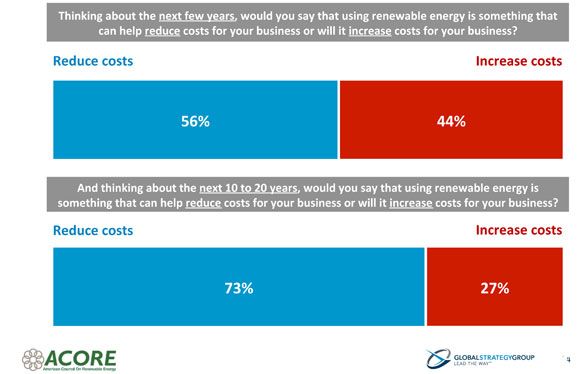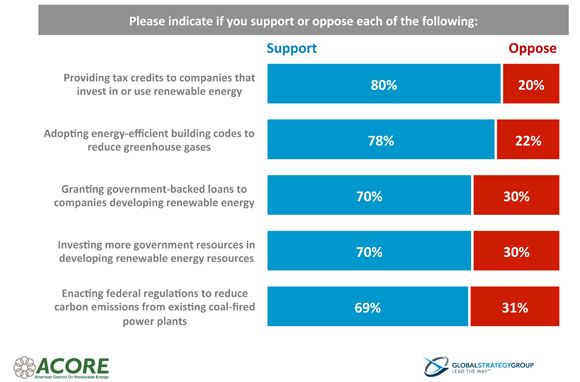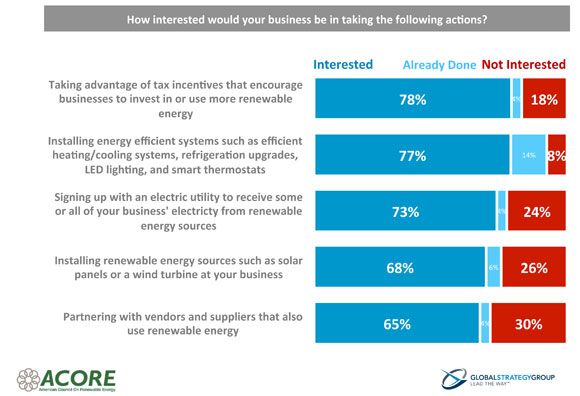Earlier this week, Ohio governor John Kasich essentially put a stop to new wind farms by signing House Bill 483, which will make most future projects economically unfeasible due to zoning restrictions.
The move, along with the state’s freeze of its clean energy law for the next two years through Senate Bill 310, would suggest that Ohio simply isn’t interested in supporting energy efficiency and renewables.
Those policies are out of step with the private sector. According to a new survey released by ACORE, business leaders across the Midwest and Western U.S. are largely supportive of renewable energy and what it means for their companies. In Ohio, for example, business groups such as the Ohio Manufacturers’ Association had come out against the bill halting clean energy support.
The majority of business leaders responding to the survey said that renewables would cut costs for their companies in coming years. That figure jumped to 73 percent when executives looked more than a decade out.
“Business leaders want policies like renewable portfolio standards and net energy metering,” said Nick Gourevitch, SVP and director of research at Global Strategy Group, which conducted the survey for ACORE. It polled 800 executives, 400 from small businesses and 400 from large businesses, spread across six Midwestern states and five Western states.

The findings were similar across the West and Midwest, although the West was often more supportive of renewables by a margin of a few percentage points. There has been plenty of investment activity in renewables among large corporations, but the survey from ACORE shows interest across the corporate spectrum.
“We see a disconnect all the time between what the public thinks, what business thinks and what Washington thinks,” Gourevitch said of the polling his company does.

Most of the discussions at this week's REFF Wall Street conference revolved around the details of financing renewables, such as tax equity, emerging YieldCos, securitization and technology risk. But ACORE wanted to offer some high-level findings that illustrated the growing appetite for renewables in the business world.
“Maybe it’s time that some in Congress stop listening to special interests and start listening to their constituents,” said Michael Brower, president and CEO of ACORE.
Most executives said that they were interested in clean energy in many ways, such as taking advantage of tax incentives and installing more energy efficiency systems or rooftop solar.

The conclusion: business leaders like renewables, and they want a clear pathway via which to make investments. Policies like the ones in Ohio that prevent renewable energy project development or disincentivize efficiency are counter to what the majority of companies are asking for.



